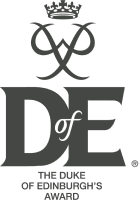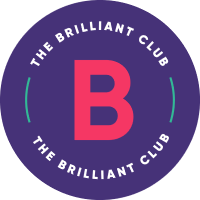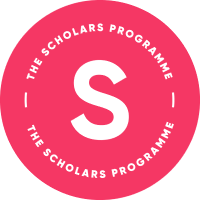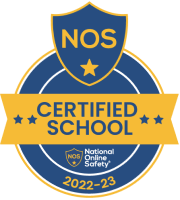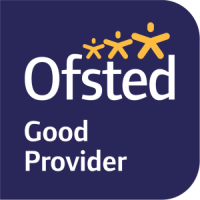This subject is part of the Faculty of Creative Arts
Our subject intent
- Encourage students to be inspired
- Develop creativity, sensitivity and emotional awareness
- Encourage self-discipline, self-confidence and self-motivation
- Develop pupils’ musical skills and interests, enabling pupils to engage actively in the study of music, both individually and in groups
- Explore modern British values
- Enable pupils to understand and appreciate a range of different genres of music through the development of social, moral, spiritual and cultural understanding
- Develop broader life skills in pupils such as leadership, networking and being inclusive
- Allow pupils to recognise their full potential.
Why is Music important?
Music is a unique form of communication that can change the way learners feel, think and act. Music forms part of an individual’s identity and positive interaction with music can develop students’ competence as learners and increase their self-esteem.
There are 5 rooms (including the Drama room) for pupils to practise during lunch and break times. We have a vast array of pianos, drum-kits, guitars, amplifiers as well as a computer suite for pupils to use for research or compositional purposes. The department also has a full set of Steel Drums which is one of the key highlights of the department.
Our Head of Faculty is
Mr R Down rdown@tcat.school
Our subject teacher and email addresses is
Mr D Racic: dracic@tcat.school
Curriculum Subject Offer
Year 11 Music
Subject intent
In Year 10, students will have studied set works from the following genres: Vocal music, Instrumental Music 1700-1820 and Music for Stage and Screen.
In Year 11, students go on to explore set works from the genre ‘Fusion’ music, as well as recapping all of the set works covered in Year 10. Students will work towards a second composition, set to a brief as well as preparing their performance work in readiness for their performance exam in March. Students submit both of their performances and both of their compositions by April and then continue preparing for their summer ‘Listening and Appraising’ exam.
All topics will provide opportunities for students to develop group work and independent skills as well as leadership skills.
Lessons are arranged for 2 GCSE Music lessons a week for the period of a half term. In Year 10, students study 6 half terms of GCSE Music.
Topic Breakdown
|
|
Half term 1 |
Half term 2 |
|
Autumn |
Revision of Year One areas of study
Selection of composition brief Performing |
Fusions set works
Composing to a brief Performing |
|
Spring |
Fusions wider listening
Composing to a brief Performing |
Revision of all set works
Complete free composition Complete composition to a brief Record Performances |
|
Summer |
Revision of all set works
Practise wider listening Submission of Performing and Composing coursework for moderation (by 15th May) |
Written examination |
Formative assessment will take place throughout the topic to secure knowledge and understanding and summative assessment will take place at the end of each half term. Pupil performances are recorded part way through the topic, peer assessment is strongly and actively encouraged to constructively appraise fellow peers’ work, so that they can see what progress they have made over time. Pupils will have their performance and compositional work marked internally and moderated before having their written exam marked externally.
Music full Scheme of Work - Year 11
Within each subject we have our own specific personalised marking and feeback policy.
|
Arts and Creative Technology |
||
|
|
KS3 |
KS4 |
|
Verbal dialogue |
Teachers circulate with purpose, checking pupils’ work and collecting information on whole-class strengths, skill development, errors, misconceptions, knowledge gaps etc. The teacher adjusts their lesson accordingly. |
Teachers circulate with purpose, checking pupils’ work, providing feedback if appropriate and collecting information on whole-class strengths, errors, misconceptions, knowledge gaps etc. The teacher adjusts their lesson (or SOW) accordingly. |
|
Self/peer assessment |
Verbal or written feedback through strengths/targets and annotations. If written, peer and self-assessment should be completed in blue pen. |
Verbal or written feedback through strengths/targets and annotations. If written, peer and self-assessment should be completed in blue pen. |
|
Whole Class Feedback |
When pupils complete extended pieces of work, teachers will look through a sample of work from each class they teach and note pupils’ strengths and targets. Teachers will then use this information to provide whole class feedback on what pupils are doing well and how pupils can improve their work further. As this type of marking involves the teacher looking at a sample of work, the teacher will use a rotation system to ensure that the work of all pupils is looked at on a regular basis. Where books are not used, verbal responses from pupils or video evidence can be used. |
When pupils complete extended pieces of writing, teachers will read through a sample of books from each class they teach and note pupils’ strengths and targets. Teachers will then use this information to provide whole class feedback on what pupils are doing well and how pupils can improve their work further. As this type of marking involves the teacher looking at a sample of books, the teacher will use a rotation system to ensure that the books of all pupils are looked at on a regular basis. Where books are not used, verbal responses from pupils or video evidence can be used. |
|
Written comments |
Teachers within the department will either: 1. Check through the work of all pupils and use a marking code to indicate the strengths and targets of the work. The marking code will be shared with all pupils and pupils will be given precise instruction about how to improve their work. OR 2. Read through the work of all pupils and write a strength comment and target comment at the end of the piece of work. OR 3. Record evidence of work through suitable media, providing pupils with a strength and target comment relevant to the piece of work. SPAG Teachers will identify where pupils make errors in their spelling, punctuation and grammar and pupils will be given time in lessons to make corrections (by circling errors where SPAG mistakes appear). If several pupils in a class are making the same spelling, punctuation or grammar error then the teacher will address this with the class. |
Teachers within the department will either: 1. Read through the work of all pupils and use a marking code to indicate the strengths and targets of the work. The marking code will be shared with all pupils and pupils will be given precise instruction about how to improve their work. OR 2. Read through the work of all pupils and write a strength comment and target comment at the end of the piece of work. OR 3. Record evidence of work through suitable media, providing pupils with a strength and target comment relevant to the piece of work.
SPAG Teachers will identify where pupils make errors in their spelling, punctuation and grammar and pupils will be given time in lessons to make corrections (by circling errors where SPAG mistakes appear). If several pupils in a class are making the same spelling, punctuation or grammar error then the teacher will address this with the class.
Written feedback forms part of the module feedback process in vocational courses. This is intended to be summative for that unit/module but formative toward improvement in the following unit/module. |
|
Frequency of feedback |
Live feedback and responsive teaching will take place in most lessons where pupils have been asked to complete extended pieces of work. * Whole-class feedback will take place once a week. Peer/self-assessment When deemed to be the most effective method of assessing work produced in lessons Written comments will take place after between 10 and 15 lessons (around twice per term), as appropriate for the pace of the class. OR Once per module/rotation.
|
Live feedback and responsive teaching will take place in most lessons where pupils have been asked to complete extended pieces of writing. * Whole-class feedback will take place once a week. Peer/self-assessment When deemed to be the most effective method of assessing work produced in lessons Written comments will take place after between 10 and 15 lessons (around twice per term), as appropriate for the pace of the class. There may be several lessons where pupils do not write extensively. Instead lesson time will be used to: (for example) read and discuss the musical scores; annotate the text/diagrams; make notes about the set-works; complete short comprehension activities. |
|
Response to feedback |
When directed after marking/whole class feedback, pupils will be expected to make a response in blue pen OR Make media application of their feedback in their ongoing work. In some instances, pupils will be expected to put the title DIRT and either re-draft an entire piece of work or a section of the piece of work according to the teacher’s instructions. In other instances, pupils will be expected to apply their feedback in the form of transferable skills applied in a new task. This would be done in blue pen when relevant. In further instances, pupils may be asked to answer questions posed by the teacher. Responses to spelling mistakes include writing out misspelled words such as subject specific vocabulary or key words. |
When directed after marking/whole class feedback, pupils will be expected to make a response in blue pen OR Make media application of their feedback in their ongoing work. In some instances, pupils will be expected to put the title DIRT and either re-draft an entire piece of work or a section of the piece of work according to the teacher’s instructions. In other instances, pupils will be expected to apply their feedback in the form of transferable skills applied in a new task. This would be done in blue pen when relevant. In further instances, pupils may be asked to answer questions posed by the teacher. Responses to spelling mistakes include writing out misspelled words and listening to explicit teaching of spelling (etymology etc.). |
|
Summative assessment |
1 x formal assessment each half term or module rotation. A piece of extended work which is marked using comparative judgement on the No More Marking platform. Band boundaries are applied to the assessments once judged, as stated in the SOW. |
1 x formal assessment each half term. A piece of extended writing which is marked using comparative judgement on the No More Marking platform. Band boundaries are applied to the assessments once judged. This might be a practical piece or some written work, as stated in the SOW. |
